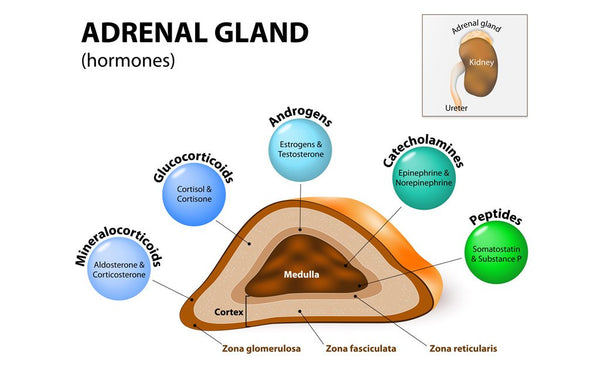
Anxiety & Depression: Is There a Way Out?
If you suffer from anxiety or depression, you're not alone.
Anxiety and depression are among the leading symptoms women struggle with during midlife, especially as they approach and go through menopause. Possible causes of anxiety and depression include a combination of biological, psychological and social sources of distress. Increasing research also suggests that these factors may cause problems in brain function, including the abnormal activity of certain neural circuits in the brain.
The persistent feeling of sadness or loss of interest that characterises major depression can lead to a range of behavioural and physical symptoms. These include changes in sleep, appetite, energy levels, concentration, behaviour and self-esteem.
Depression can also be associated with thoughts of suicide.
Symptoms of anxiety can be overwhelming for many people and they often contribute to other issues such as nausea, dizziness, heart palpitations and the inability to cope with life's pressures.
Stress hormones produced by the adrenals (cortisol and aldosterone) are released when we experience challenging situations such as arguments, working long hours, illness, fatigue, etc. These hormones stimulate the nerves (neuroexcitatory) and may cause anxiety, restlessness, nervousness, fear, panic and distress. Long term production of these hormones is detrimental to the health and wellbeing of an individual. This is due to the overstimulation and hyperactivity of the adrenals which can lead to burnout.
Symptoms of depression & anxiety
Depression and anxiety disorders are an unpleasant combination of emotions and may often include:
- Physical sensations such as nausea, tension, headaches and heart palpitations
- Sadness and crying episodes, low self-esteem, hopelessness
- Guilt or a feeling of being overwhelmed
- Sleep and eating disturbances
- Inability to be comforted
- Exhaustion, emptiness, social withdrawal
- Becoming easily frustrated
- Spells of anger towards others
- Panic attacks
- Decreased sex drive
Lifestyle changes to lessen depression & anxiety
Consider these helpful recommendations when dealing with the symptoms of anxiety and depression:
- Reduce stress levels. Make the changes necessary to improve your personal happiness (enhance family life, strengthen relationships, decrease workload, see a counsellor, engage in a hobby or sport).
- Begin an exercise regime. Insufficient exercise has been directly associated with depression. Studies show that inactive people produce less of the happy hormones in the brain (i.e. serotonin and endorphins).
- Improve your daily routine. Start doing the things that make you feel contented and satisfied. Remember that happiness is YOUR responsibility and depression can only be addressed if you take steps toward improving your attitude.
- Consider doing a liver detoxification. There is a direct relationship between liver health and your state of mind. In Chinese medicine, anger is the emotion associated with the liver. By improving how the liver eliminates wastes and toxins from the body, you also get rid of all the negative emotions that could have built up over time.
- Avoid triggers to emotional disturbances (alcohol, cigarettes, unhealthy relationships, stress).
- Get active. Take a brisk walk or go swimming. Practice yoga and meditation. Learn deep breathing techniques. All these help to settle the nerves.
Natural remedies for depression & anxiety
Nature has provided us with remedies that can address the nutrient deficiencies associated with stress and nervous system sensitivity:
- B Vitamins, especially Vitamin B5 & B6, help establish balance in the nervous system. They also promote the synthesis of happy hormones in the brain.
- Magnesium is an essential nutrient for nervous system health. Individuals exhibiting symptoms of stress, tension, depression and anxiety tend to be deficient in this mineral.
- Australian Bush Flower remedies may help with anxiety and promote a sense of well-being (Black Eyed Susan, Bauhinia, Crowea, Dog Rose, Gymea Lily, Jacaranda, Paw Paw, and Southern Cross). Bach Flower Rescue Remedy is also effective in easing the burden of stress and tension caused by emotional trauma.
- Herbal medicines are also beneficial for nervous system health. The actions required to provide more integrity to the nervous system are anxiolytic, antidepressant, mildly sedative, adaptogenic, nourishing and carminative support. Withania, Licorice, Siberian Ginseng, Magnolia, Zizyphus, St Johns Wort, Saffron, Passionflower, Oats, Alfalfa and Chamomile give strength, grit and integrity to the nerves while calming the stress responses.
- Often anxiety is linked with hormonal changes. Interestingly, the fourth most commonly reported improvement from people taking Happy Hormones, is reduced feelings of anxiety.
Happy Hormones is not a specialised remedy for anxiety, however, the secondary effect of balancing hormones plays a large role in improving the condition.













